Best AI tools for< Run Prompts >
20 - AI tool Sites

Knit
Knit is an AI playground for prompt designers. It provides professional prompt editors with various models, including GPT-4-turbo/vision, Claude-3, Gemini-pro, and more. Users can store, edit, and run their prompts in Knit. It also offers project management features, allowing users to organize prompts with projects, set up projects for different use cases, and collaborate with team members. Knit supports different kinds of models, including OpenAI, Claude, Azure OpenAI, and plans to support more in the future. It allows users to control API parameters, export code instantly, and provides security features such as encryption and version control.

Dora
Dora is a no-code 3D animated website design platform that allows users to create stunning 3D and animated visuals without writing a single line of code. With Dora, designers, freelancers, and creative professionals can focus on what they do best: designing. The platform is tailored for professionals who prioritize design aesthetics without wanting to dive deep into the backend. Dora offers a variety of features, including a drag-and-connect constraint layout system, advanced animation capabilities, and pixel-perfect usability. With Dora, users can create responsive 3D and animated websites that translate seamlessly across devices.

Dora
Dora is an AI-powered platform that enables users to create 3D animated websites without the need for coding. It caters to designers, freelancers, and creative professionals who seek to design visually captivating websites effortlessly. With Dora, users can craft mesmerizing 3D and animated visuals that are responsive and seamlessly translate across devices. The platform is designed for professionals who prioritize design aesthetics and offers a no-code experience for those transitioning from other design tools. Dora leverages advanced AI algorithms to generate, customize, and deploy stunning landing pages, revolutionizing the web design process.
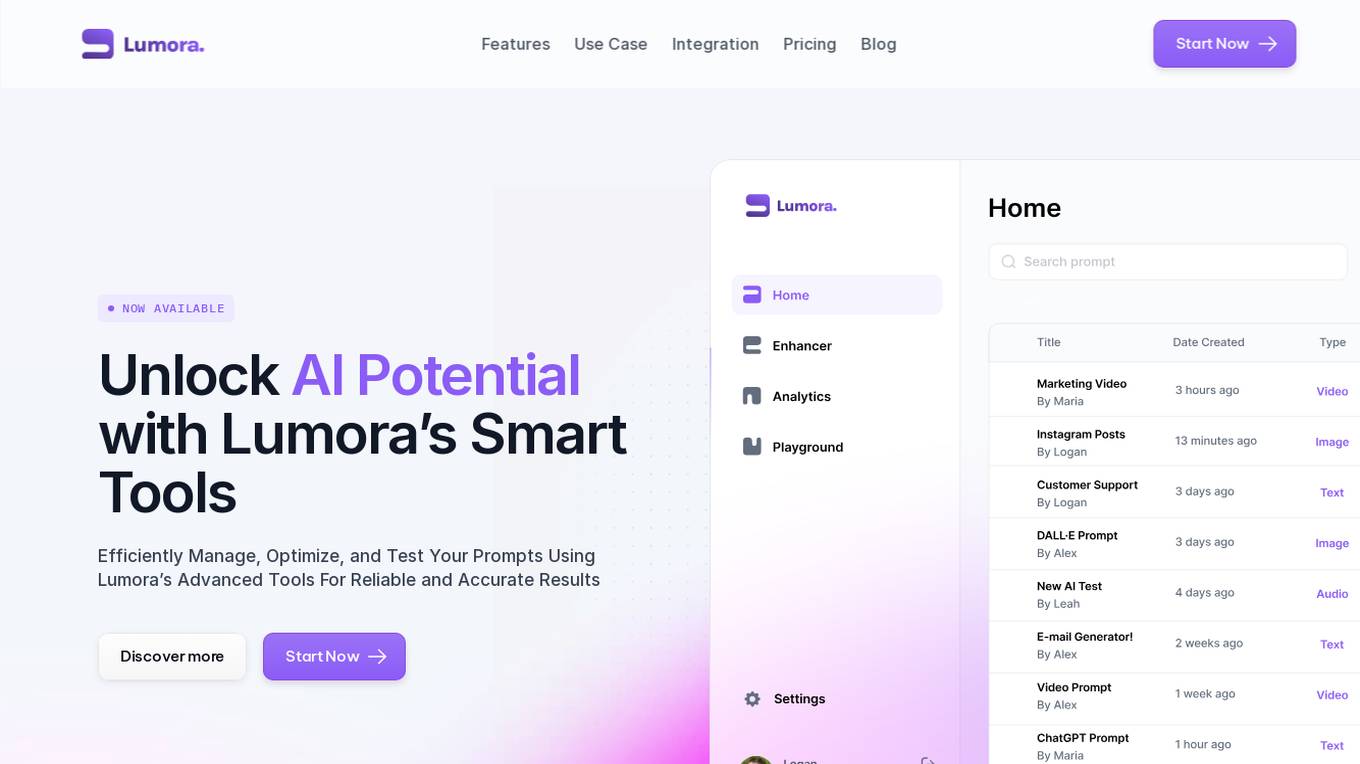
Lumora
Lumora is an AI tool designed to help users efficiently manage, optimize, and test prompts for various AI platforms. It offers features such as prompt organization, enhancement, testing, and development. Lumora aims to improve prompt outcomes and streamline prompt management for teams, providing a user-friendly interface and a playground for experimentation. The tool also integrates with various AI models for text, image, and video generation, allowing users to optimize prompts for better results.
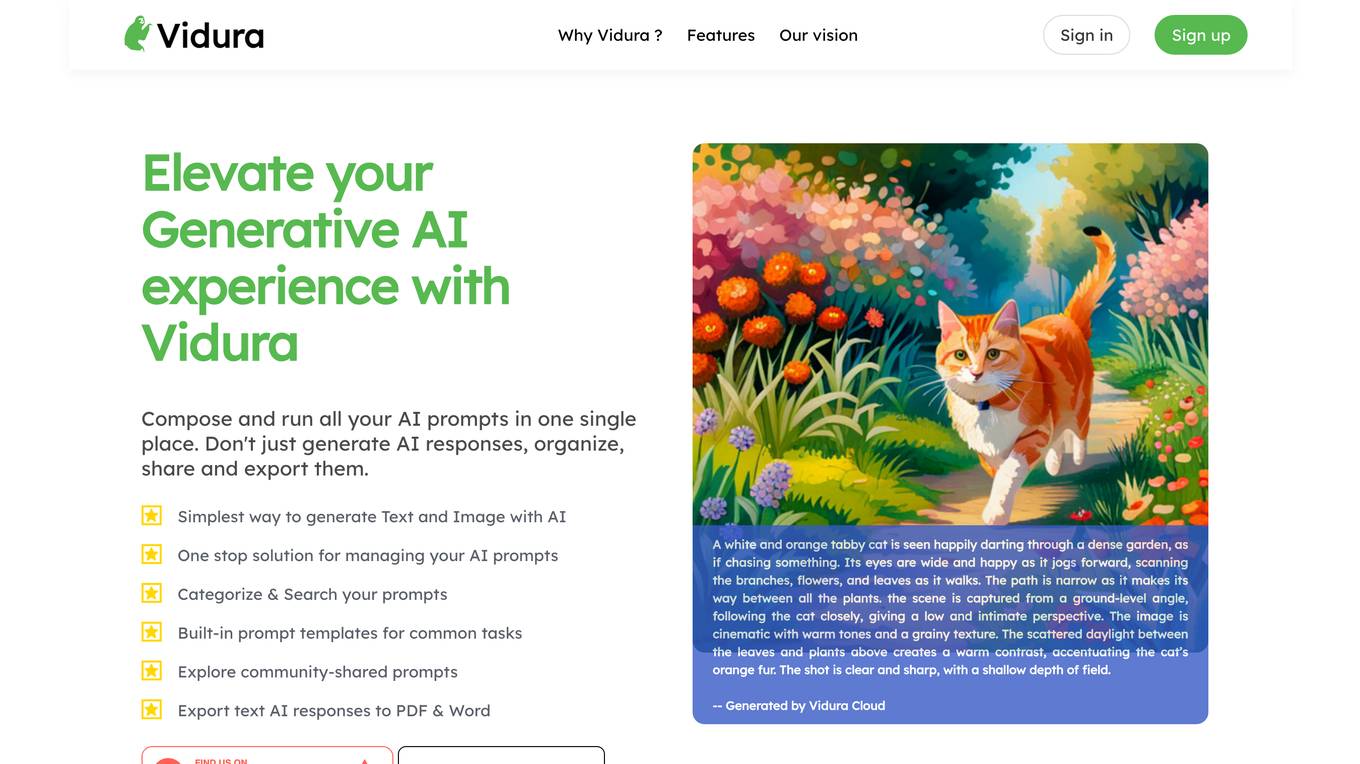
Vidura
Vidura is a prompt management system integrated with multiple AI systems, designed to enhance the Generative AI experience. Users can compose, organize, share, and export AI prompts easily. The platform offers features like categorizing and searching prompts, built-in templates, community sharing, and exporting responses to PDF & Word. Vidura aims to simplify the process of generating text and image content with AI, making it a productivity tool for Generative AI users.
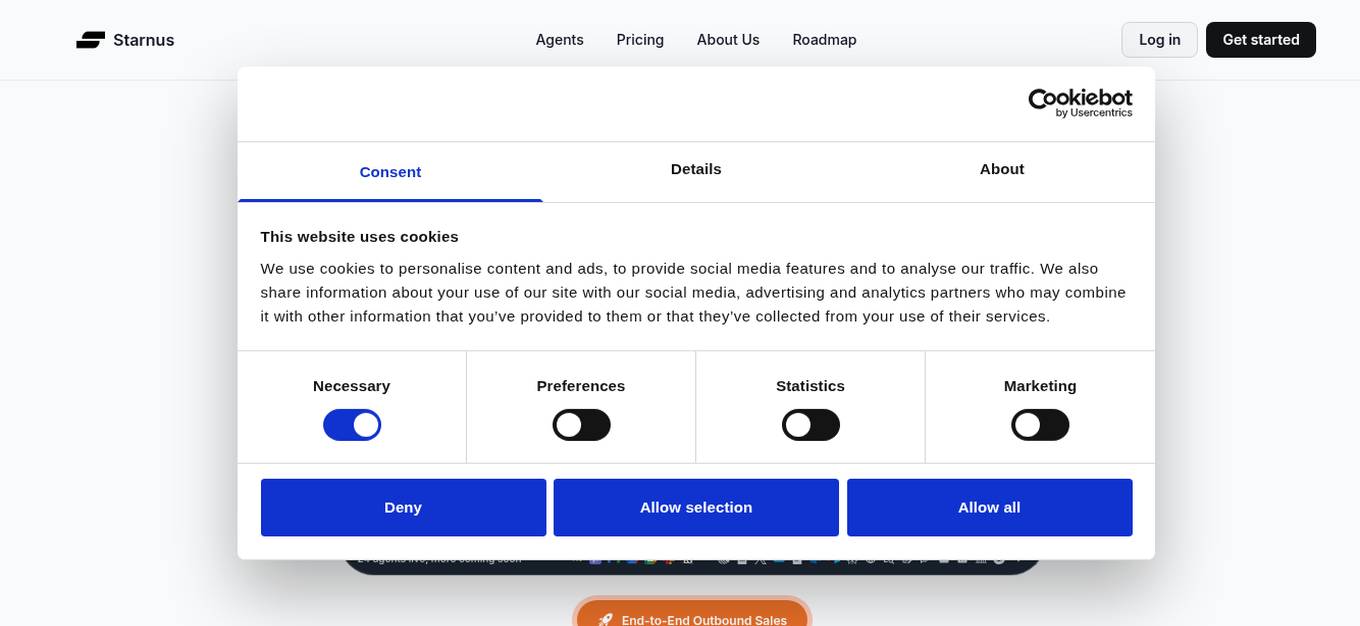
Starnus
Starnus is an AI tool designed to assist in sales processes. It leverages artificial intelligence to streamline sales activities, enhance customer interactions, and optimize sales strategies. By utilizing advanced algorithms and data analytics, Starnus helps businesses improve their sales performance and achieve higher conversion rates. With its user-friendly interface and customizable features, Starnus is a valuable asset for sales teams looking to boost productivity and drive revenue growth.
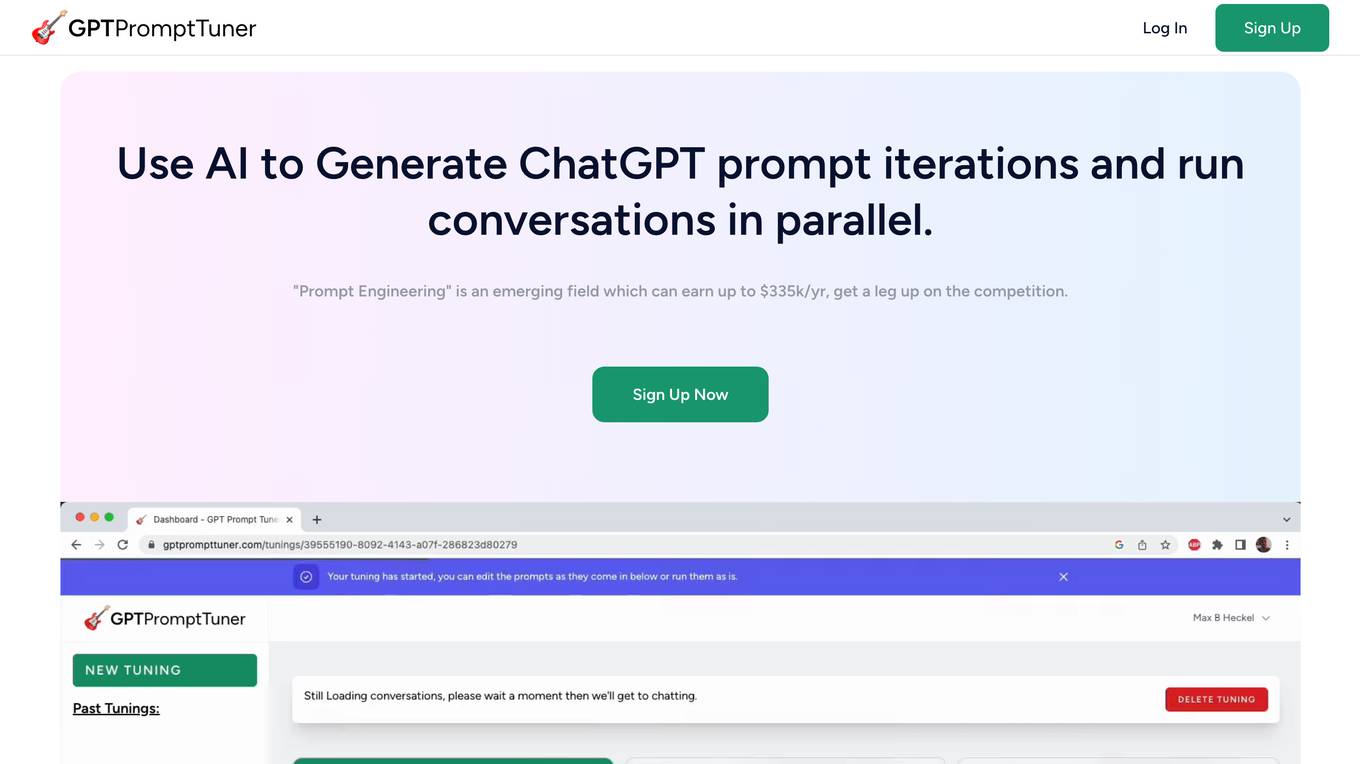
GPT Prompt Tuner
GPT Prompt Tuner is an AI tool that leverages AI to enhance ChatGPT prompts and facilitate parallel conversations. It enables users to generate prompt iterations, customize prompts, and run multiple conversations simultaneously. The tool is designed to streamline the process of prompt engineering, offering a flexible and efficient solution for users seeking to optimize their interactions with ChatGPT.
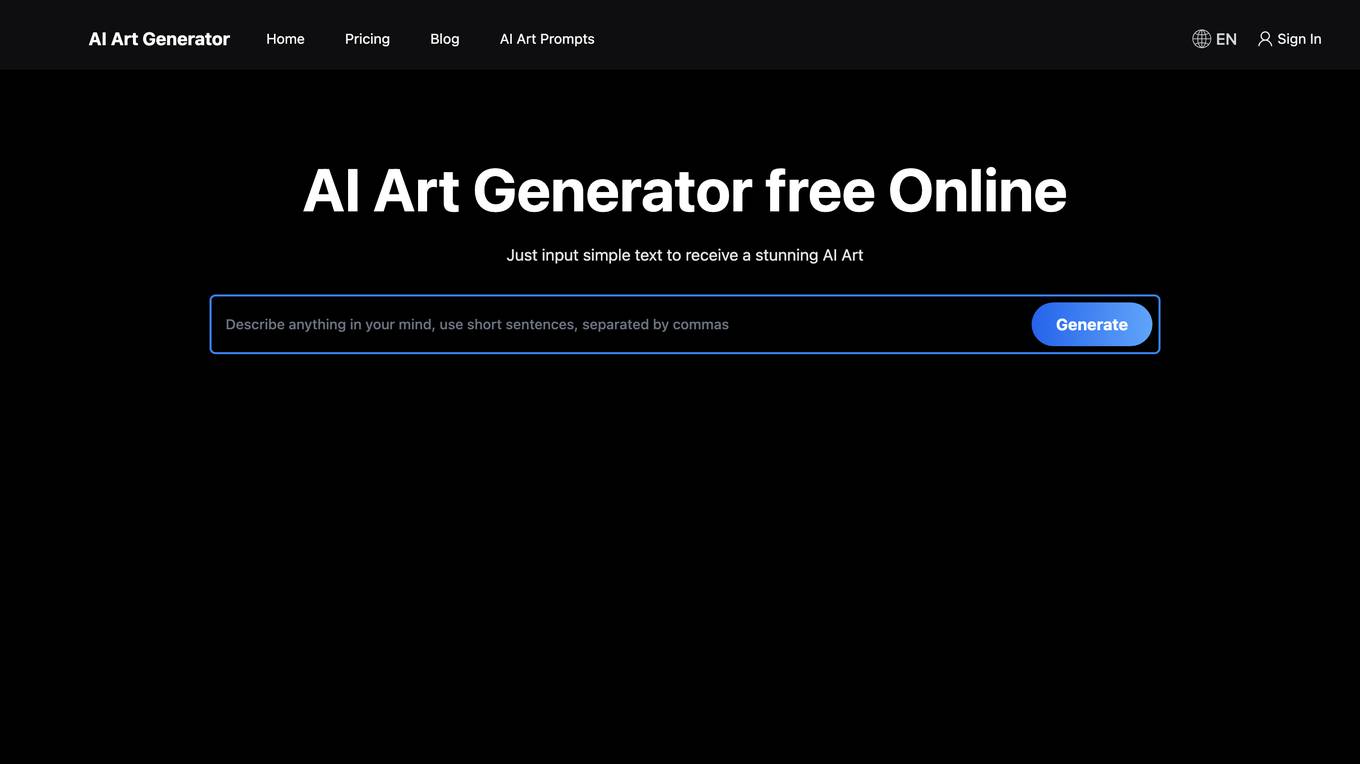
AI Art Generator
AI Art Generator is an online platform that leverages state-of-the-art Stable Diffusion technology to quickly turn users' imaginations into amazing artistic creations with just simple text prompts. Users can create unique images by providing text descriptions, and the AI model generates original artworks in seconds. The platform allows anyone to easily create stunning AI-generated artworks without needing artistic skills or training. AI Art Generator aims to provide a seamless and creative experience for users to explore the future of art through advanced technology.
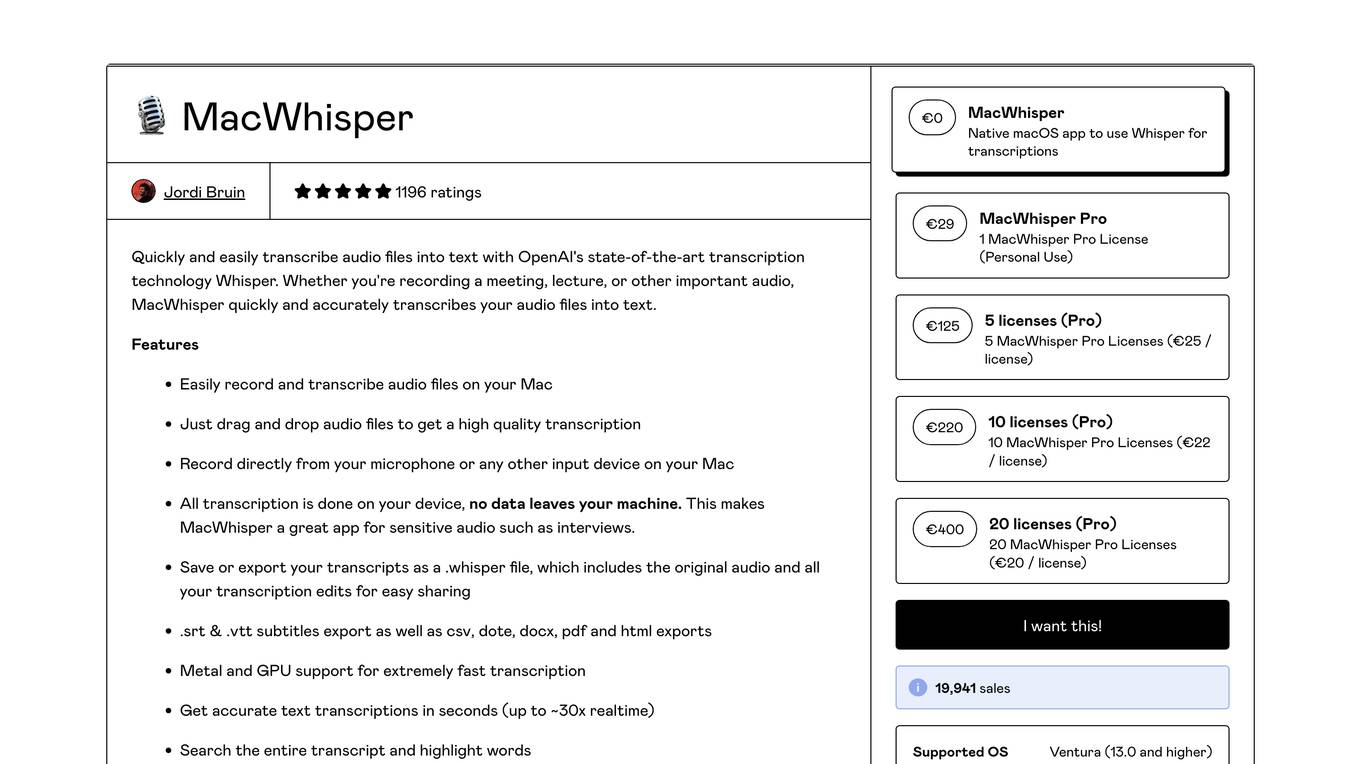
MacWhisper
MacWhisper is a native macOS application that utilizes OpenAI's Whisper technology for transcribing audio files into text. It offers a user-friendly interface for recording, transcribing, and editing audio, making it suitable for various use cases such as transcribing meetings, lectures, interviews, and podcasts. The application is designed to protect user privacy by performing all transcriptions locally on the device, ensuring that no data leaves the user's machine.

Reflect
Reflect is an AI-powered test automation tool that revolutionizes the way end-to-end tests are created, executed, and maintained. By leveraging Generative AI, Reflect eliminates the need for manual coding and provides a seamless testing experience. The tool offers features such as no-code test automation, visual testing, API testing, cross-browser testing, and more. Reflect aims to help companies increase software quality by accelerating testing processes and ensuring test adaptability over time.
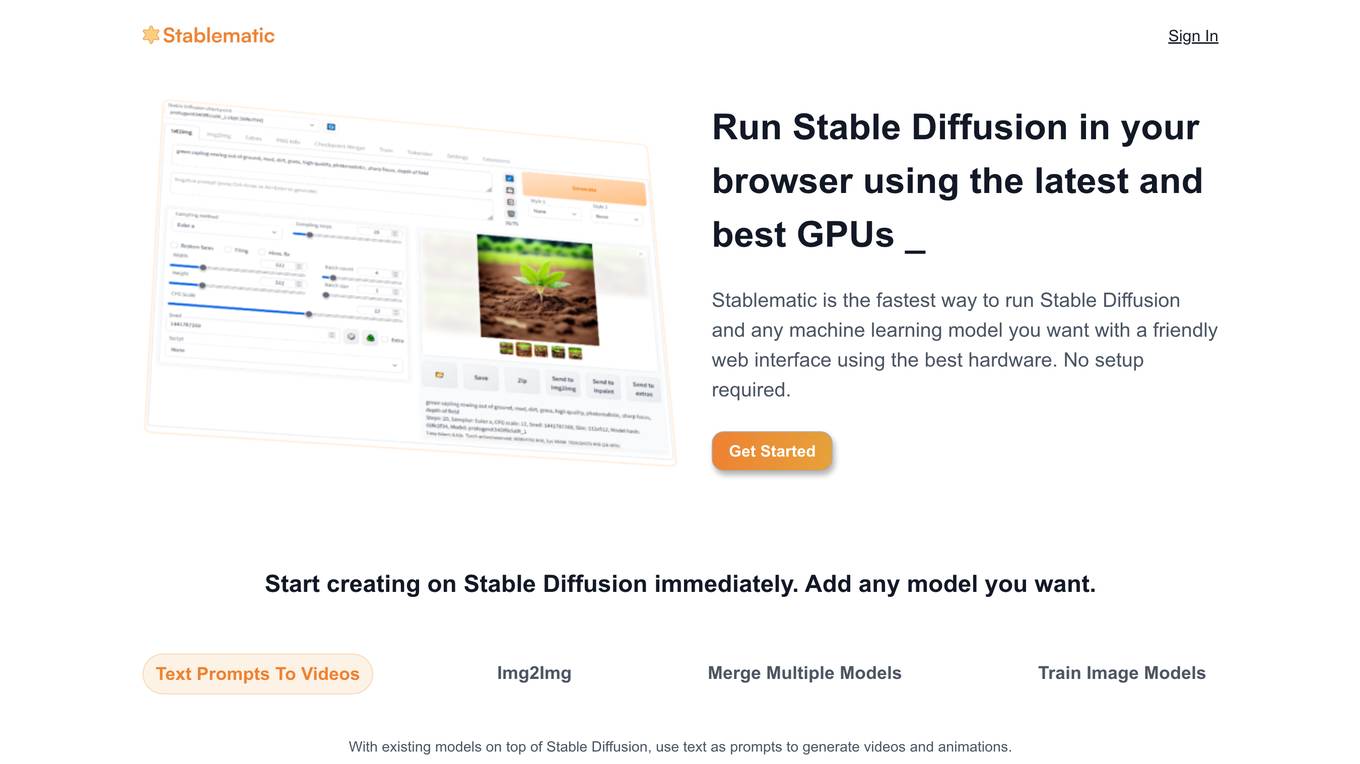
Stablematic
Stablematic is a web-based platform that allows users to run Stable Diffusion and other machine learning models without the need for local setup or hardware limitations. It provides a user-friendly interface, pre-installed plugins, and dedicated GPU resources for a seamless and efficient workflow. Users can generate images and videos from text prompts, merge multiple models, train custom models, and access a range of pre-trained models, including Dreambooth and CivitAi models. Stablematic also offers API access for developers and dedicated support for users to explore and utilize the capabilities of Stable Diffusion and other machine learning models.

Langtail
Langtail is a platform that helps developers build, test, and deploy AI-powered applications. It provides a suite of tools to help developers debug prompts, run tests, and monitor the performance of their AI models. Langtail also offers a community forum where developers can share tips and tricks, and get help from other users.
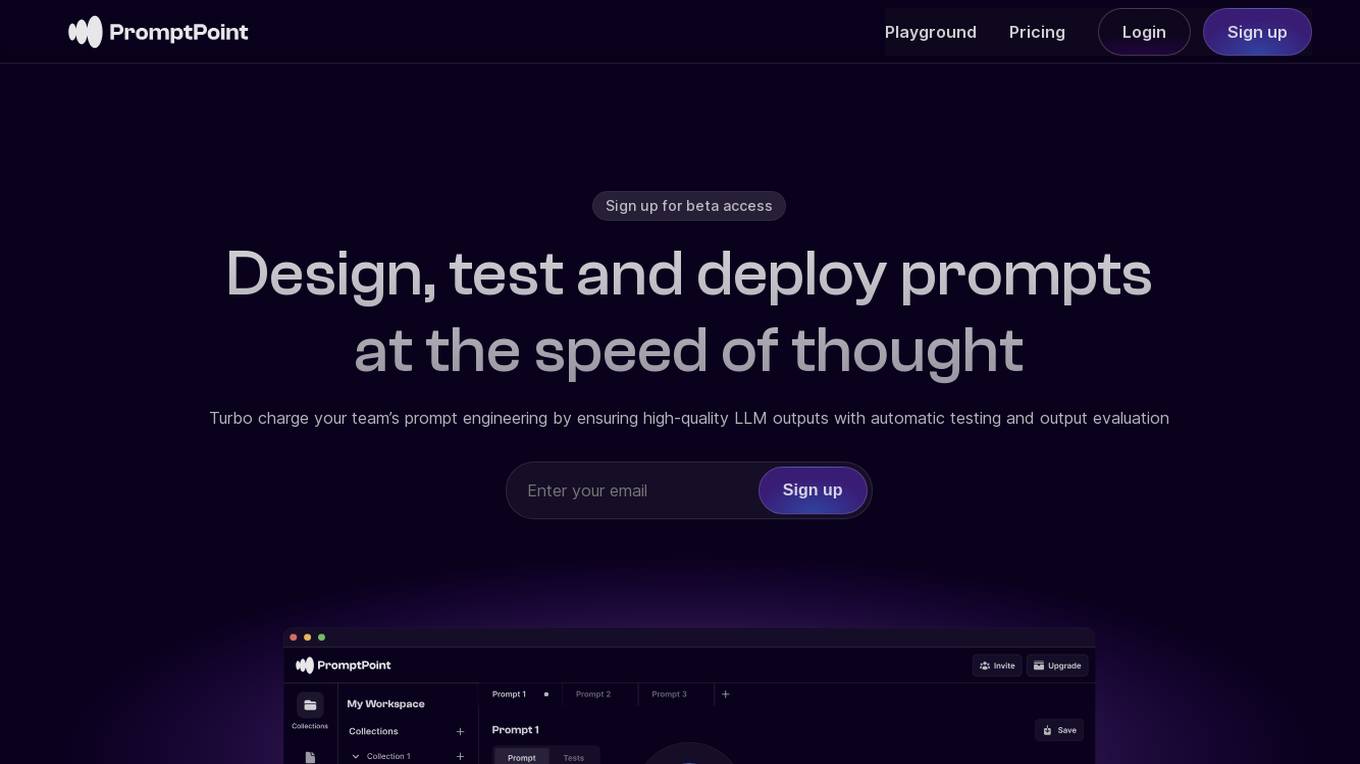
PromptPoint Playground
PromptPoint Playground is an AI tool designed to help users design, test, and deploy prompts quickly and efficiently. It enables teams to create high-quality LLM outputs through automatic testing and evaluation. The platform allows users to make non-deterministic prompts predictable, organize prompt configurations, run automated tests, and monitor usage. With a focus on collaboration and accessibility, PromptPoint Playground empowers both technical and non-technical users to leverage the power of large language models for prompt engineering.
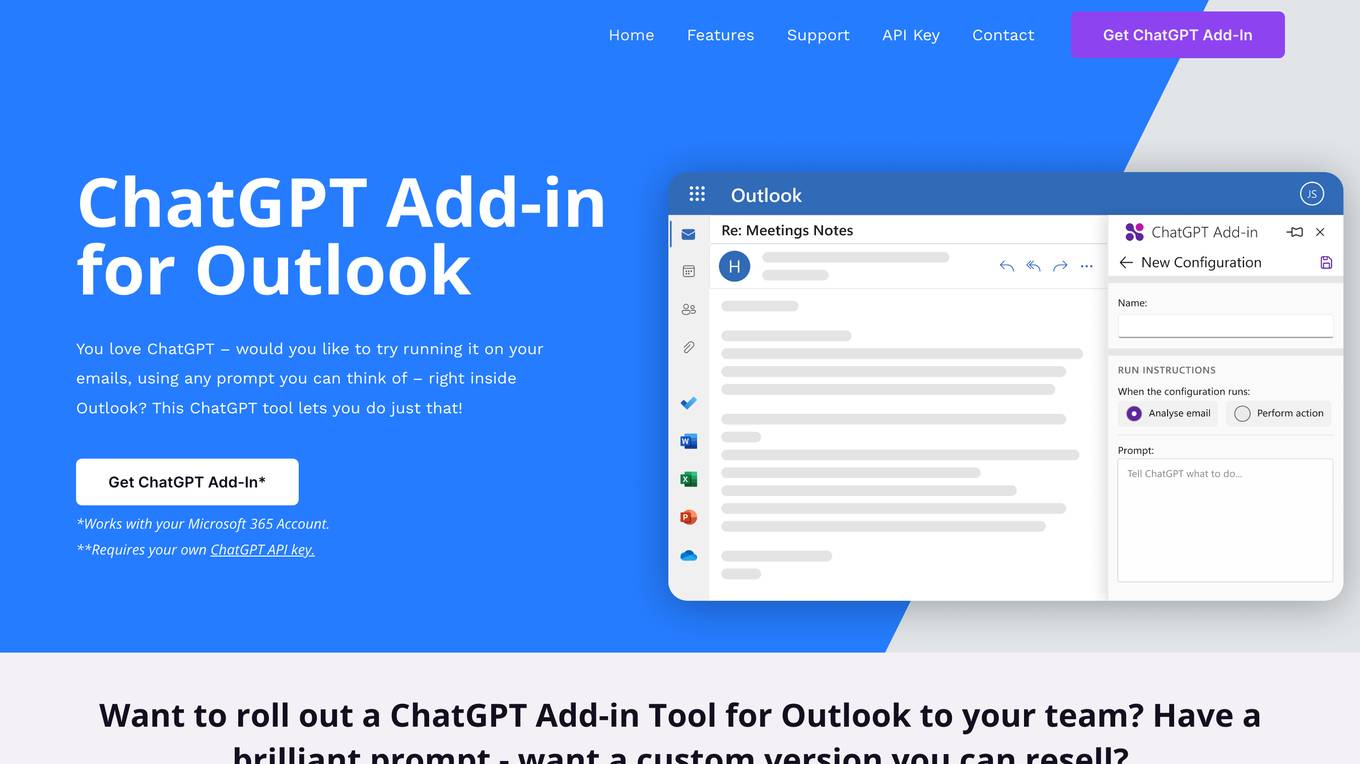
ChatGPT for Outlook
ChatGPT for Outlook is an AI tool that integrates the power of ChatGPT into Microsoft Outlook, allowing users to run ChatGPT on emails to generate summaries, highlights, and important information. Users can create custom prompts, process entire emails or specific parts, manage multiple configurations, and improve email efficiency. Blueberry Consultants, the developer, offers custom versions for businesses and teams, enabling users to resell the tool with unique prompts. The tool enhances productivity and information management within Outlook, leveraging AI technology for email processing and organization.

Sink In
Sink In is a cloud-based platform that provides access to Stable Diffusion AI image generation models. It offers a variety of models to choose from, including majicMIX realistic, MeinaHentai, AbsoluteReality, DreamShaper, and more. Users can generate images by inputting text prompts and selecting the desired model. Sink In charges $0.0015 for each 512x512 image generated, and it offers a 99.9% reliability guarantee for images generated in the last 30 days.
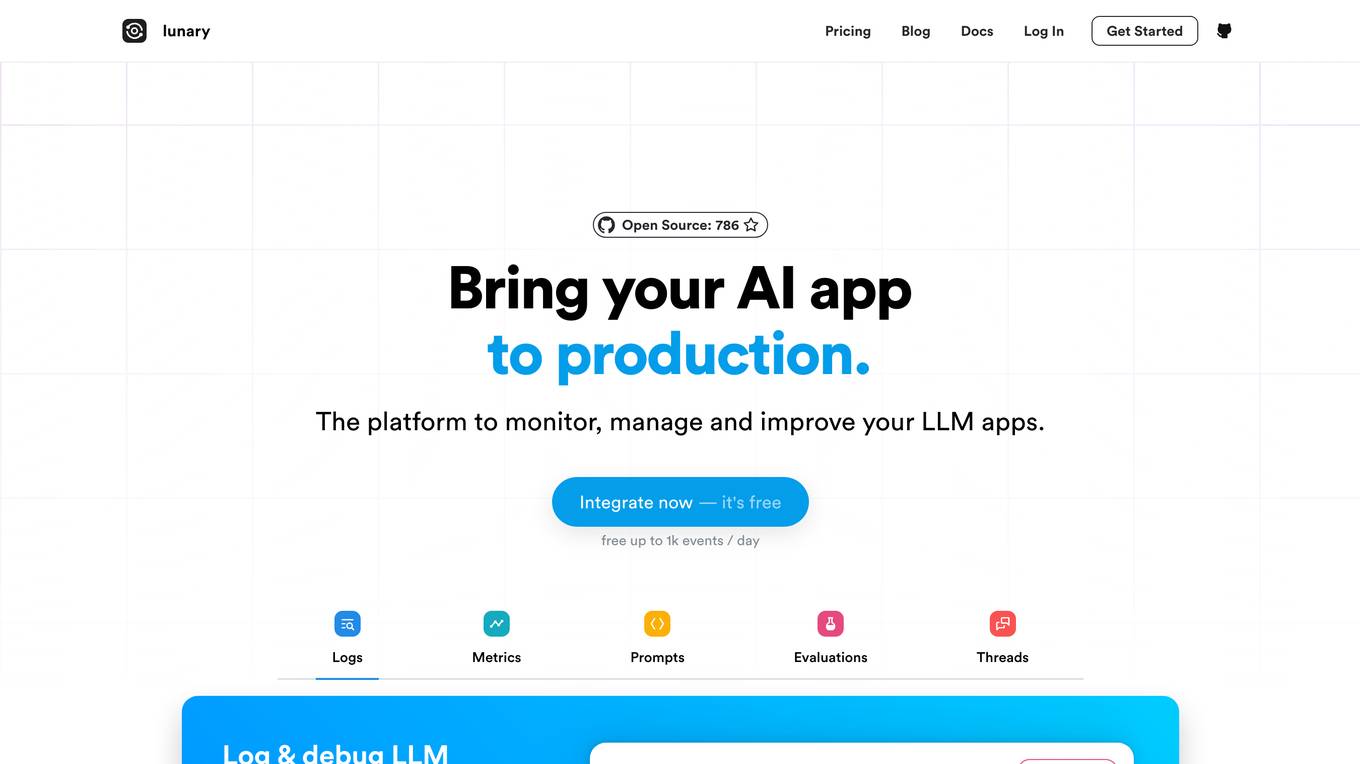
Lunary
Lunary is an AI developer platform designed to bring AI applications to production. It offers a comprehensive set of tools to manage, improve, and protect LLM apps. With features like Logs, Metrics, Prompts, Evaluations, and Threads, Lunary empowers users to monitor and optimize their AI agents effectively. The platform supports tasks such as tracing errors, labeling data for fine-tuning, optimizing costs, running benchmarks, and testing open-source models. Lunary also facilitates collaboration with non-technical teammates through features like A/B testing, versioning, and clean source-code management.

Robopic™
Robopic™ is an AI photo generator tool that allows users to create beautiful AI photos and videos without the need for a camera. Users can upload their selfies to generate AI avatars, take AI photos in any pose or action, and create AI videos from these photos. Robopic™ stands out for its high photorealism, resolution, and ability to maintain ethnicity in the generated images. With a variety of preset photo packs available, users can easily create customized images without the hassle of writing prompts or setting parameters. Overall, Robopic™ offers a cost-effective and convenient solution for conducting photo shoots using AI technology.
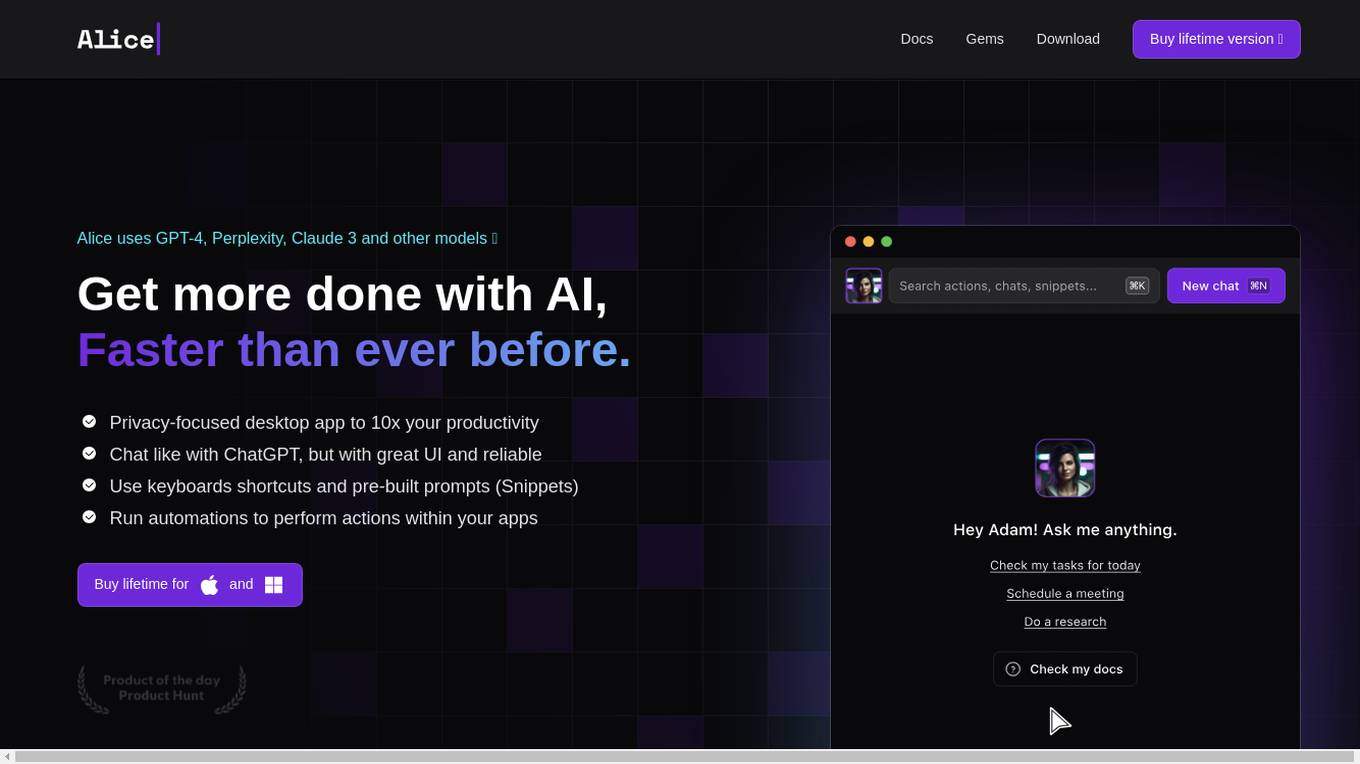
Alice App
Alice is a desktop application that provides access to advanced AI models like GPT-4, Perplexity, Claude 3, and others. It offers a user-friendly interface with features such as keyboard shortcuts, pre-built prompts (Snippets), and the ability to run automations within other applications. Alice is designed to enhance productivity and streamline tasks by providing quick access to AI-powered assistance.
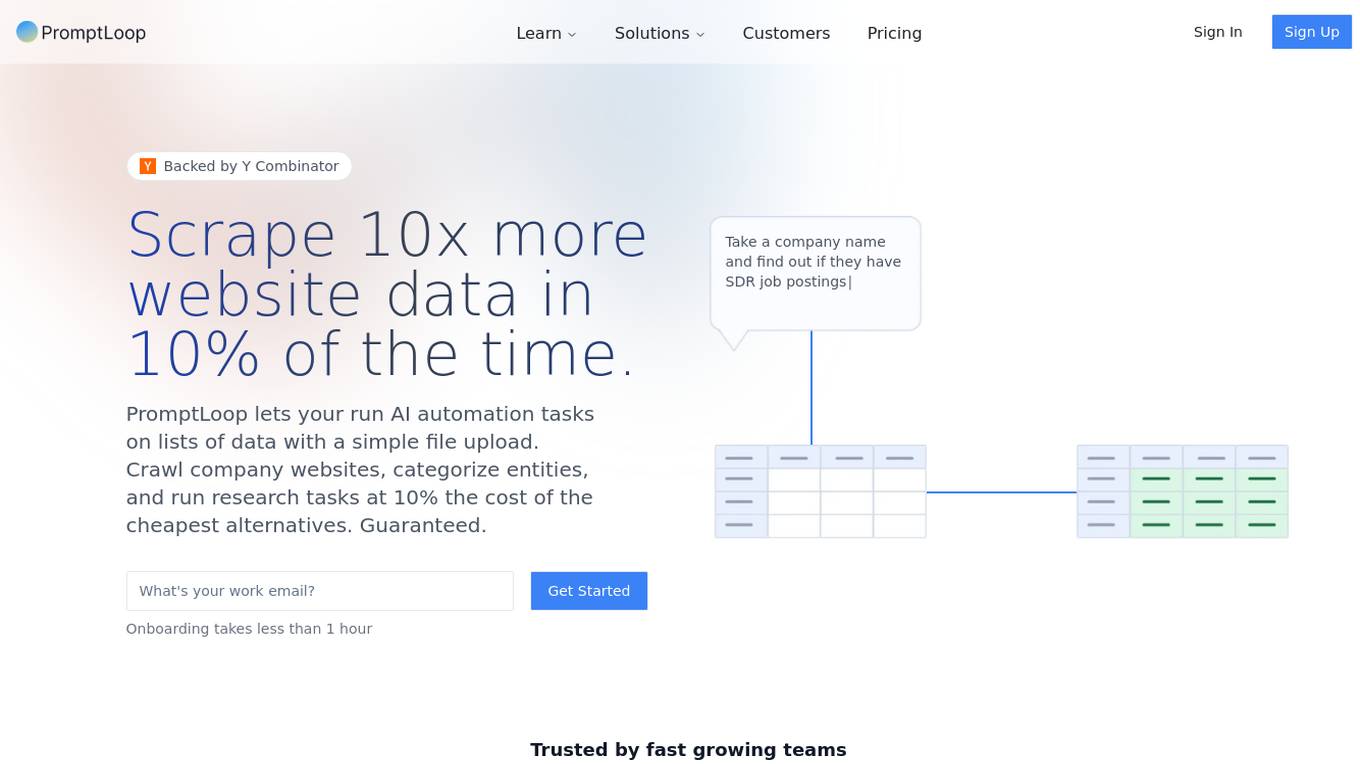
PromptLoop
PromptLoop is an AI-powered web scraping and data extraction platform that allows users to run AI automation tasks on lists of data with a simple file upload. It enables users to crawl company websites, categorize entities, and conduct research tasks at a fraction of the cost of other alternatives. By leveraging unique company data from spreadsheets, PromptLoop enables the creation of custom AI models tailored to specific needs, facilitating the extraction of valuable insights from complex information.

Promptchan AI
Promptchan AI is an AI tool that serves as an NSFW AI Generator. It requires JavaScript to be enabled to run the app. The tool focuses on maintaining character consistency, allowing pro users to use characters for recurring themes.
1 - Open Source AI Tools
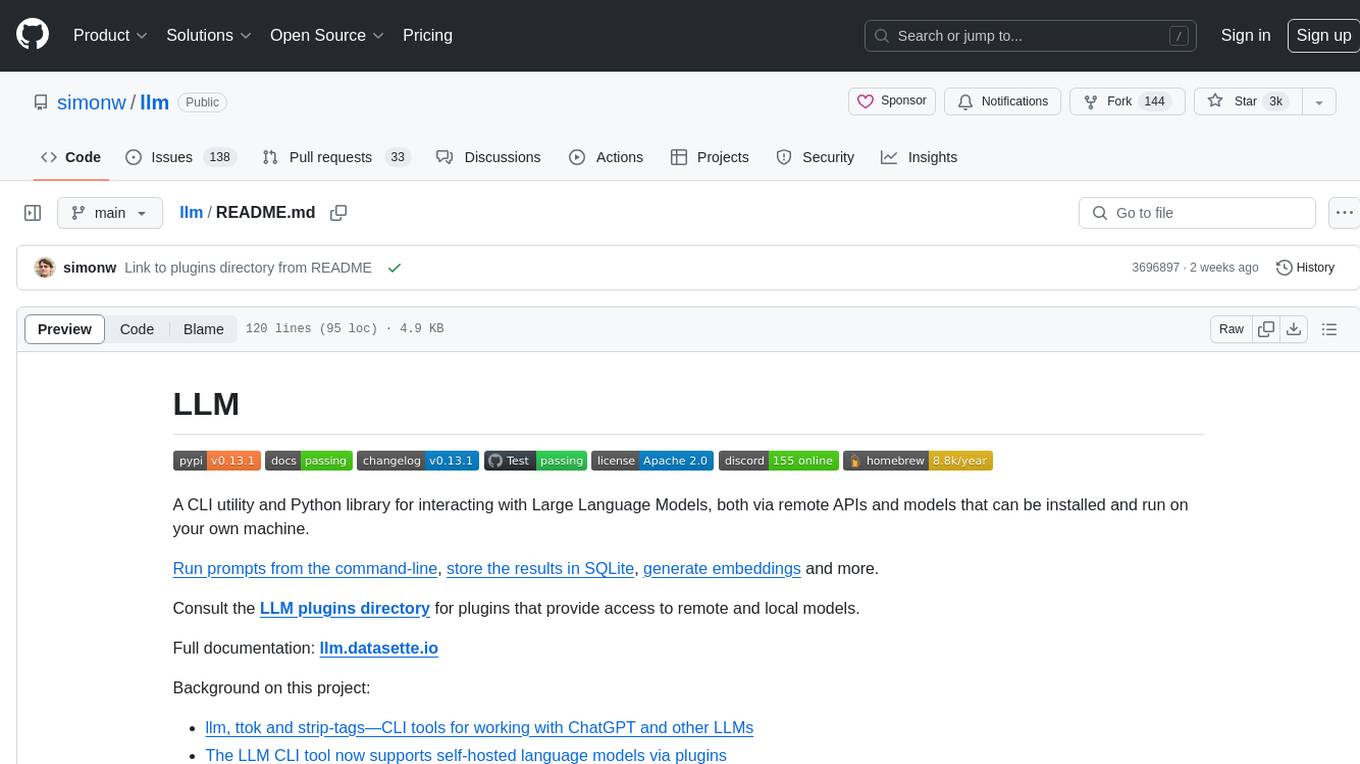
llm
LLM is a CLI utility and Python library for interacting with Large Language Models, both via remote APIs and models that can be installed and run on your own machine. It allows users to run prompts from the command-line, store results in SQLite, generate embeddings, and more. The tool supports self-hosted language models via plugins and provides access to remote and local models. Users can install plugins to access models by different providers, including models that can be installed and run on their own device. LLM offers various options for running Mistral models in the terminal and enables users to start chat sessions with models. Additionally, users can use a system prompt to provide instructions for processing input to the tool.
20 - OpenAI Gpts

Consulting & Investment Banking Interview Prep GPT
Run mock interviews, review content and get tips to ace strategy consulting and investment banking interviews

Dungeon Master's Assistant
Your new DM's screen: helping Dungeon Masters to craft & run amazing D&D adventures.

Database Builder
Hosts a real SQLite database and helps you create tables, make schema changes, and run SQL queries, ideal for all levels of database administration.

Restaurant Startup Guide
Meet the Restaurant Startup Guide GPT: your friendly guide in the restaurant biz. It offers casual, approachable advice to help you start and run your own restaurant with ease.

Community Design™
A community-building GPT based on the wildly popular Community Design™ framework from Mighty Networks. Start creating communities that run themselves.

Code Helper for Web Application Development
Friendly web assistant for efficient code. Ask the wizard to create an application and you will get the HTML, CSS and Javascript code ready to run your web application.

Creative Director GPT
I'm your brainstorm muse in marketing and advertising; the creativity machine you need to sharpen the skills, land the job, generate the ideas, win the pitches, build the brands, ace the awards, or even run your own agency. Psst... don't let your clients find out about me! 😉

Pace Assistant
Provides running splits for Strava Routes, accounting for distance and elevation changes
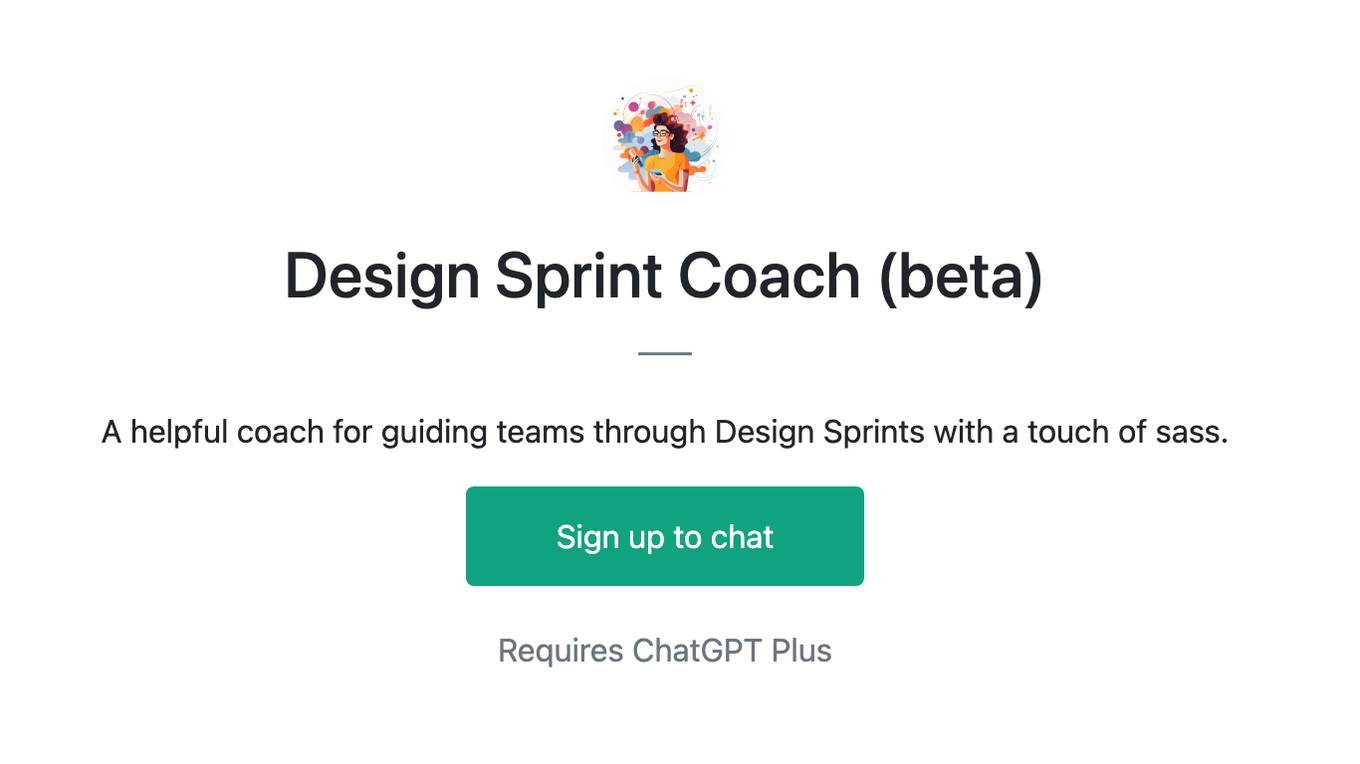
Design Sprint Coach (beta)
A helpful coach for guiding teams through Design Sprints with a touch of sass.








